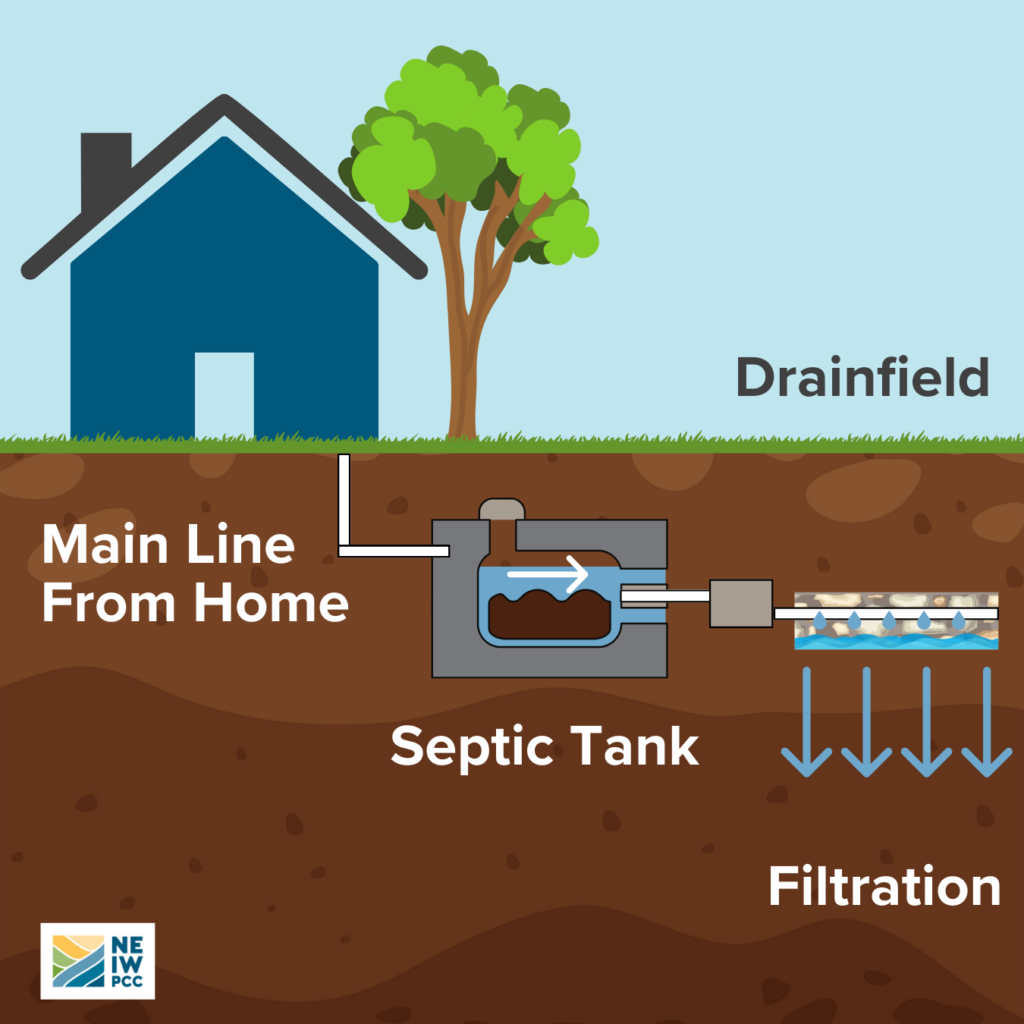Septic systems collect, treat, and disperse wastewater from homes and businesses that are not connected to a centralized treatment plant.
Onsite/decentralized wastewater treatment systems – otherwise known as septic systems – serve approximately 25 percent of the U.S. population and one-third of new development. Liquid wastewater, called septic leachate, can leak into groundwater from a septic system. Pollution from septic leachate is often the result of improper management, installation, or operation of a septic system, or can occur when the soil’s capacity for treatment is exceeded. Leachate can contaminate drinking, surface, and groundwater with nutrients, harmful bacteria, and pathogens that can cause health concerns for humans, pets, and animals in and around the water.
Learn more about septic systems and how to properly maintain them.

NEIWPCC’s Role
NEIWPCC participates in national organizations such as the National Onsite Wastewater Recycling Association (NOWRA), the Yankee Onsite Wastewater Association (YOWA), the National Environmental Services Center, WEF – Small Communities, and the State Onsite Regulators Alliance (SORA), to stay current on industry trends and represent our member states in these conversations.
Since 2005, NEIWPCC has coordinated the Massachusetts Title 5 septic system certification of Soil Evaluators and System Inspectors on behalf of the Massachusetts Department of Environmental Protection.
Additionally, NEIWPCC has coordinated and hosted the Northeast Onsite Wastewater Short Course and Equipment Exhibition since 2002.
Onsite Wastewater Workgroup
Workgroup participants include onsite wastewater regulators for all New England states and New York as well as representatives from the US EPA. Meeting topics include onsite wastewater management, innovative/alternative technologies, training needs, and national/regional developments.
State Resources
- Connecticut Dept. of Public Health – Subsurface Sewage
- Maine Dept. of Health and Human Services – Subsurface Wastewater
- Massachusetts Dept. of Environmental Protection – Septic Systems/Title 5
- New Hampshire Dept. of Environmental Services – Septic Systems
- New York State Dept. of Health – Septic Systems
- Rhode Island Dept. of Environmental Management – Septic and Onsite Wastewater Treatment Systems
- Vermont Dept. of Environmental Conservation – Wastewater Systems
Additional Resources
- National Decentralized Water Resources Capacity Development Project
- National Onsite Wastewater Recycling Association (NOWRA)
- National Small Flows Clearinghouse
- New York Onsite Wastewater Treatment Training Network
- Massachusetts Alternative Septic System Test Center
- State Onsite Regulators Association (SORA)
- The Consortium of Institutes for Decentralized Wastewater Treatment
- US EPA – Septic Systems
- Yankee Onsite Wastewater Association (YOWA)
